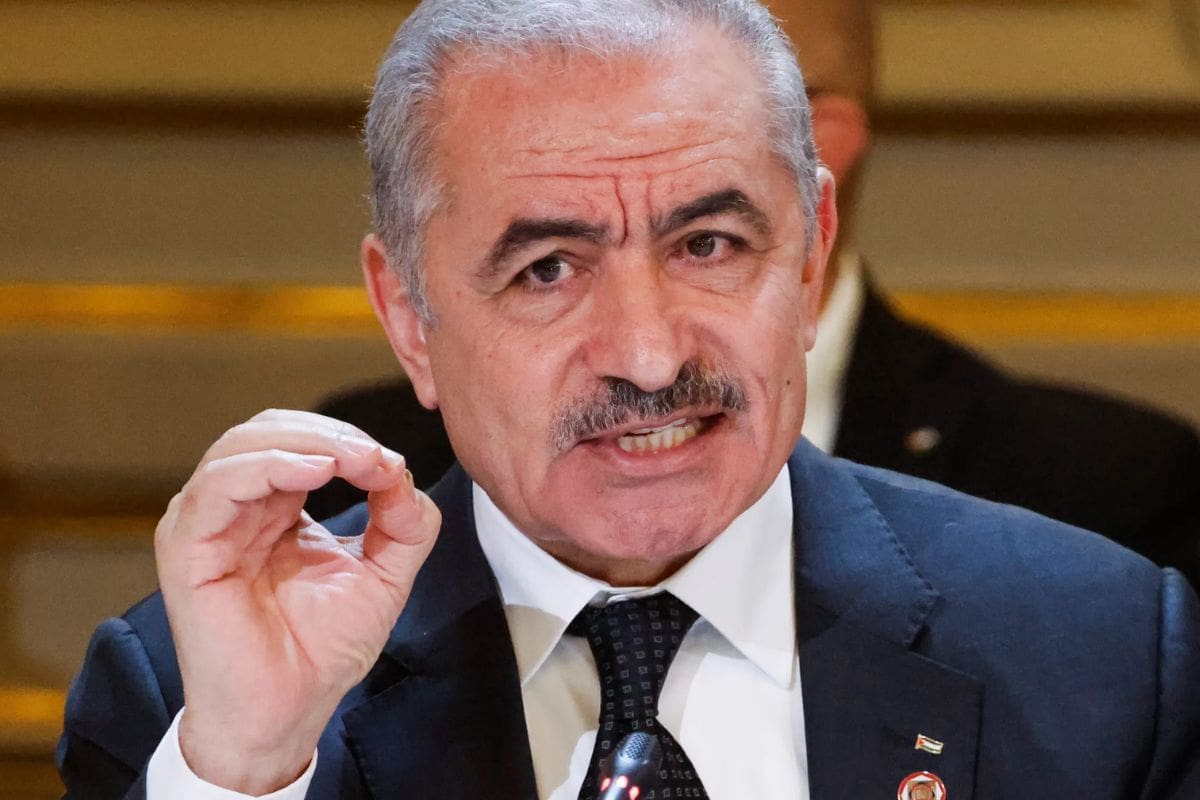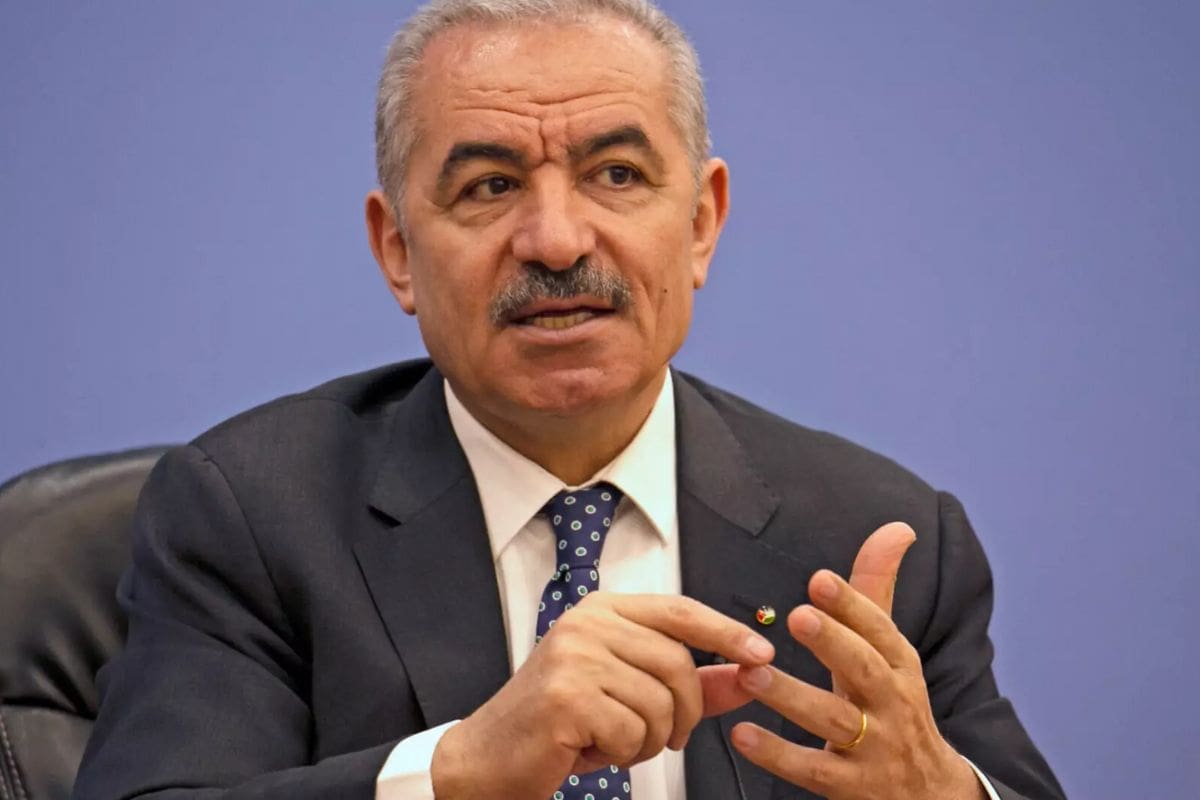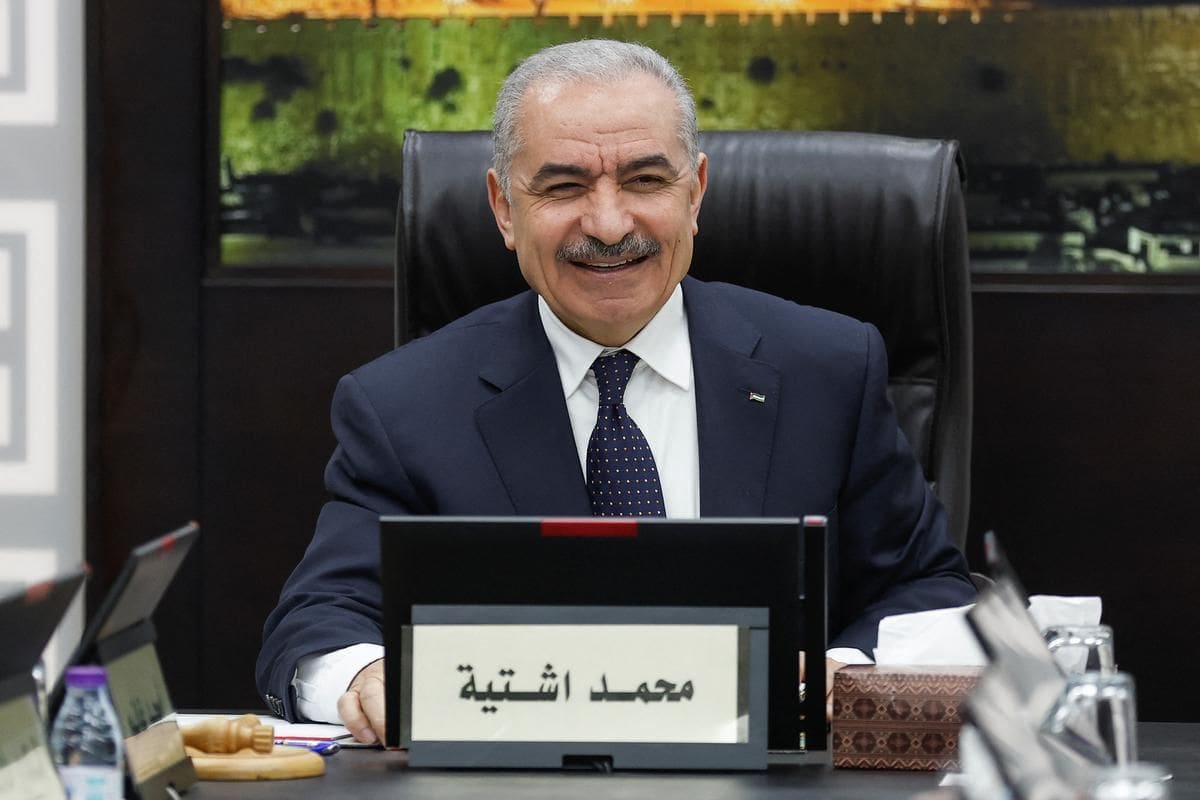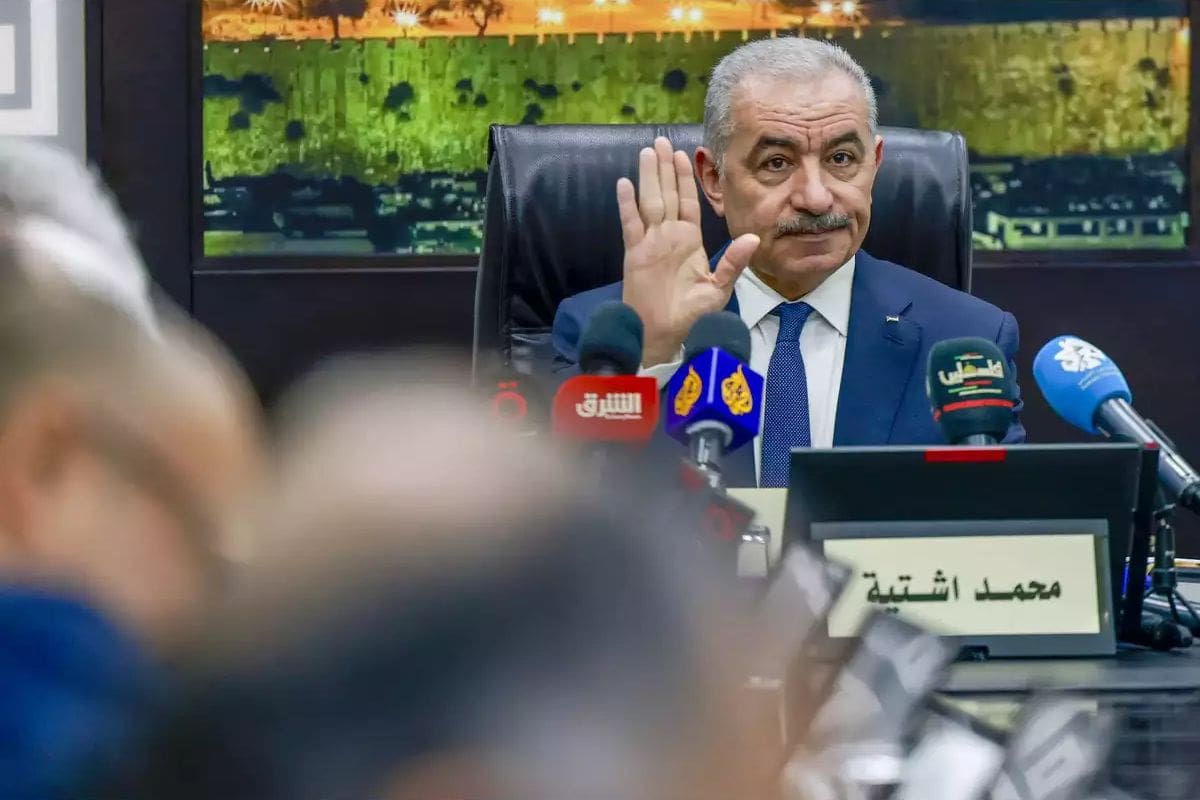Palestinian PM Resigns: The recent resignation of the Palestinian Prime Minister has sent ripples through the political landscape of the region, offering a potential gateway to much-needed reforms.
With U.S.-backed reforms on the horizon, the challenges ahead are multifaceted and complex, requiring a delicate balance of diplomacy and strategic decision-making.
As speculation swirls around the potential successor and the future political direction of Palestine, the resignation of the Prime Minister opens up a realm of possibilities and uncertainties.
In this time of transition, the eyes of the world are keenly fixed on the unfolding events, waiting to see what lies ahead.

Resignation of Palestinian Prime Minister
The unexpected announcement of Palestinian Prime Minister Mohammed Shtayyeh’s resignation has triggered speculation about the future direction of the Palestinian Authority and the potential implications of this leadership change on U.S.-backed reforms. Shtayyeh’s decision to step down signifies a significant development within the Palestinian political landscape, paving the way for a potential restructuring of the government and its policies. This move could signal a willingness to embrace new approaches and reforms, especially those supported by the United States.
Shtayyeh’s resignation comes at a critical juncture when the Palestinian Authority is seeking to navigate complex political challenges and enhance its governance structures. The departure of a key figure like the Prime Minister could offer an opportunity for fresh perspectives and strategies to be implemented. It also raises questions about the future leadership of the Palestinian Authority and the kind of reforms that may be prioritized in the coming days. As stakeholders assess the implications of this resignation, they will be closely monitoring the next steps taken by President Mahmoud Abbas in appointing a new Prime Minister and the potential impact on U.S.-backed initiatives in the region.
U.S.-Backed Reforms and Challenges
Amidst the push for reformed governance in post-war Gaza, the United States faces significant challenges in implementing its backed initiatives within the Palestinian Authority. The U.S. aims to support a reformed Palestinian Authority to govern Gaza after the conflict. However, several hurdles hinder this process:
- Political Resistance: Some factions within the Palestinian leadership may resist external influences on internal governance structures.
- Resource Constraints: Limited resources and infrastructure damage from the conflict pose obstacles to implementing comprehensive reforms effectively.
- Public Perception: The acceptance of U.S.-backed reforms by the Palestinian population is crucial for their successful implementation.
- Regional Dynamics: The complex geopolitical landscape in the Middle East may complicate U.S. efforts to drive reforms in the Palestinian Authority.
Navigating these challenges will require strategic diplomacy, thoughtful planning, and a nuanced understanding of the local context to advance sustainable governance reforms in Gaza.


Potential Successor and Future Political Landscape
Facing significant challenges in implementing U.S.-backed reforms in the Palestinian Authority post-war, the anticipated selection of Mohammad Mustafa as the next prime minister signals a strategic move towards navigating the complex political landscape and potentially reshaping the economic direction under new leadership. Mustafa, currently the chairman of the Palestine Investment Fund, brings a wealth of experience in finance and investment. His background hints at a potential shift towards economic revitalization and a focus on sustainable growth strategies. The choice of a leader with an investment-oriented background raises intriguing prospects about the future economic policies and development initiatives that may be prioritized in the Palestinian Authority.
Mustafa’s appointment also signifies a broader strategic approach by President Abbas to potentially enhance the effectiveness of governance and administration within the Palestinian Authority. By selecting a candidate with a strong financial acumen, there is a clear intention to address economic challenges and promote stability in the region. The decision to nominate Mustafa reflects a calculated step towards fostering political and economic reforms, signaling a new chapter in Palestinian leadership and potentially reshaping the trajectory of the political landscape in the region.

Also Read: California Bold Move: Combatting Abortion Travel Ban!
News In Brief
The surprise resignation of Palestinian Prime Minister Mohammed Shtayyeh has sparked speculation on potential reforms in the region. As the U.S. aims for post-war governance reforms in Gaza, challenges such as political resistance, resource constraints, and regional dynamics loom large. Amid this, the expected appointment of Mohammad Mustafa, Chairman of the Palestine Investment Fund, suggests a strategic move towards economic revitalization. Mustafa’s financial expertise hints at a shift in economic policies, addressing challenges and promoting stability. President Abbas’s choice reflects a calculated step towards political and economic reforms, marking a pivotal moment in reshaping the Palestinian leadership and its trajectory.

